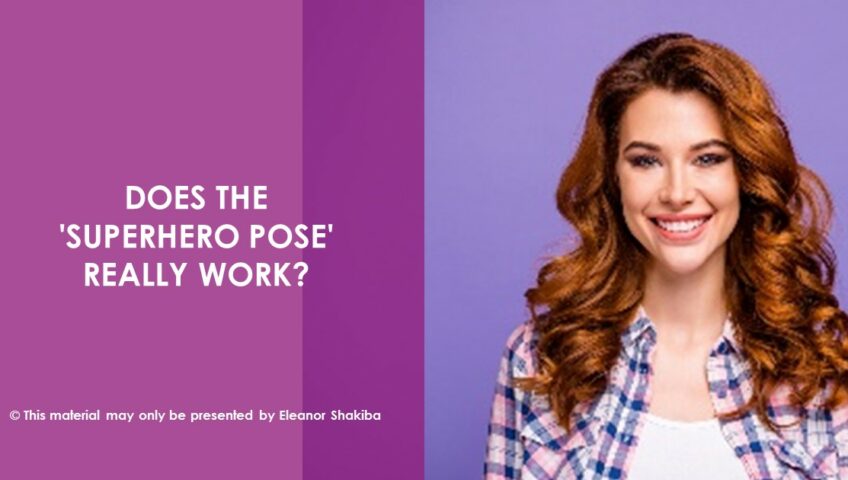If you’re searching for ways to boost confidence, you’ve probably come across claims that standing in the superhero pose will help. These claims are based on research by numerous psychologists. Probably the most well-known of these is Amy Cuddy. In 2010, she published the results of her experiments on body posture and psychological state. She claims that taking on ‘high-power’ body postures for as little as two minutes could increase tolerance for risk. This leads to hormonal shifts in the brain which support assertive action. Over time, the results of this experiment were interpreted. They found that taking on a superhero-style stand for a few minutes allows you to feel more powerful and behave more confidently.
Of course, this idea is intriguing. After all, it seems to suggest that confidence can be manufactured at will. Unfortunately, it turns out this isn’t quite the case. Instead, it seems that adopting a confident posture amplifies whatever thoughts you’re having at the time.
How do we know this? A separate research study conducted by the team at Ohio University has shown that posture can influence whether or not you act on a thought.
How did they find this out? They split a group of volunteers into two groups. The first group was instructed to think about their best qualities. The second group was told to focus on their worst qualities. The researchers then tracked the degree to which those thoughts were ‘taken on’ under different circumstances. First, they instructed both groups to adopt doubtful postures. For example, slumping, avoiding eye contact and frowning. Next, the groups were asked to shift into postures reflective of high confidence. Examples of these postures included sitting upright nodding the head and smiling confidently. The results were fascinating. It didn’t matter whether the volunteer had been instructed to think positive thoughts or negative ones. Their posture made the thoughts more believable. In other words, thoughts have a bigger impact when you’re in a confident posture.
The lead researcher on the project, Richard Petty, summarises the results of the study by saying, “Confidence magnifies your thinking.” He points out that this can be both a blessing and a curse. If you’re in a confident posture when you think negatively about yourself, you’re more likely to internalise this self-defeating idea.
So if you want to boost your confidence, how can this research help you? Here are a few strategies you might find useful. Firstly, make sure you’re in a confident posture if you’re using cognitive reframing (also known as thought disputation) techniques. If you’re into affirmations, the same principle would apply.
Secondly, if your self-talk is starting to take a negative tone, avoid nodding or moving into confident postures. Instead, shake your head. It sounds like a simple technique, but Petty discovered it’s remarkably effective. It seems your brain finds it difficult to complete a negative thought that your body is actively rejecting through postural changes. This is a great example of the power of incongruence between what you think and how you express yourself.
Thirdly, remember that open, upright posture is far healthier than slouching. Even if going into superhero pose doesn’t make you more confident, it will definitely improve your physical state. Add a bit of exercise to your daily routine, and you’re setting yourself up to promote thriving at a physical as well as a mental level. Always remember that thriving states can be possible for anyone. If you’re finding low confidence or self-doubt are holding you back, remember there’s a lot you can do to change.
About the author: Eleanor Shakiba
Eleanor is a positive psychology trainer. She designs bespoke programs for organisations and individuals who want to promote ‘positive deviance’ in business. Her expertise in teaching social and emotional intelligence skills makes Eleanor a highly sought-after facilitator. Eleanor’s qualifications are in Positive Psychology, Social Anthropology, Counselling, Coaching, Adult Education and Neuro Linguistic Programming. Eleanor is the author of the Positive Psychology Toolkit for HR and L&D Practitioners.
